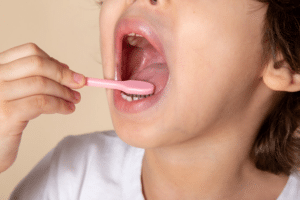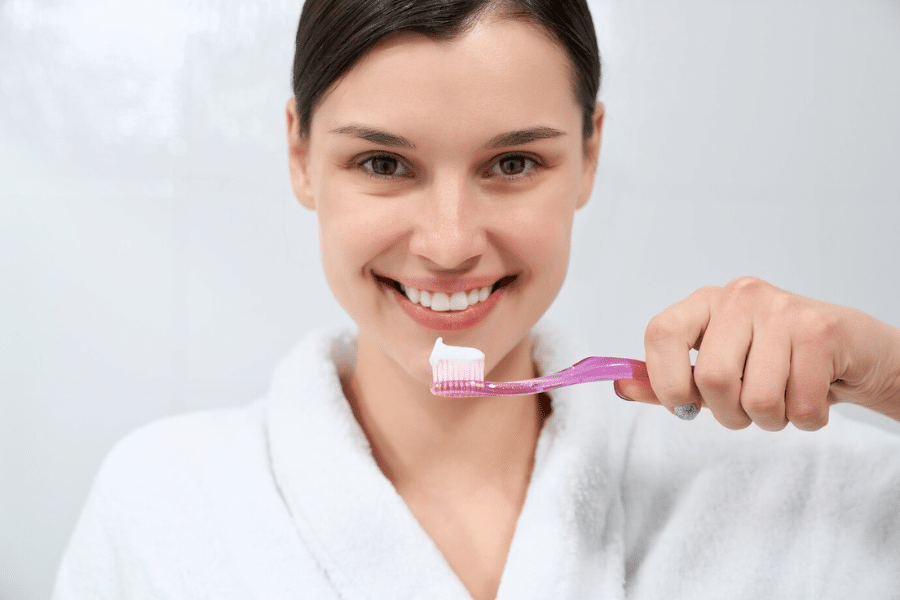Maintaining good oral health is key to preventing cavities and ensuring a bright, healthy smile. While fluoride is commonly used to strengthen tooth enamel and prevent decay, there are natural alternatives available for those seeking fluoride-free options. Incorporating simple yet effective practices into your daily routine can help protect your teeth from cavities without the use of fluoride. From dietary changes to proper oral hygiene techniques, these natural cavity prevention tips can support your oral health safely and holistically.
Understanding Cavities
Before diving into preventive dentistry methods, let us understand what cavities are and how they develop. Tooth decay, also known as dental caries, is a super common oral issue caused by tiny germs in our mouths. It happens when we have too much sugary stuff in our diet, which lets these germs thrive and produce acid that harms our teeth. The key factors behind tooth decay are these germs, our oral environment, our bodies, and how long the situation lasts. Basically, if we keep eating lots of sugary foods, it messes up the balance of germs in our mouths, leading to tooth decay. Preventing it involves stopping those harmful germs, using special treatments to clean up the germy film on our teeth, and watching how much sugar we eat (Chen et al., 2020).
The Dangers of Fluoride Toothpaste
To put it simply, the stronger the fluoride in toothpaste, the better it fights cavities. This is a common misconception regarding the fact that fluoride toothpaste can prevent or reverse cavities. However, the reality is different. It has been found that fluoride weakens the tooth enamel and causes tooth fractures. Toothpaste with more fluoride helps fight cavities better, but it can also increase the chance of fluorosis (Wong et al., 2011).
Fluorosis happens when you take in too much fluoride, whether by swallowing toothpaste or other means. Kids often end up swallowing toothpaste, especially younger ones, and they are more likely to gulp down a lot of it. This extra fluoride they swallow can add up over time and might lead to fluorosis (Marinho et al., 1996).
Natural Cavity Prevention Tips
Preventing cavities naturally involves adopting a holistic approach to dental care. Here are some additional tips to complement the ones mentioned earlier, all of which are easy to incorporate into your daily routine:
Chew Sugar-Free Gum
Sugar-free gum, especially those sweetened with xylitol, can be an excellent ally in the fight against cavities. Chewing gum increases saliva flow, which helps wash away food particles and neutralize acids in the mouth. Additionally, xylitol has been shown to disrupt the growth of cavity-causing bacteria, making it a valuable tool for cavity prevention. Keep a pack of sugar-free gum handy and chew a piece after meals or snacks to help protect your teeth.
Stay Hydrated
Drinking plenty of water is not only essential for overall health but also for maintaining optimal oral hygiene. Water helps rinse away food debris and bacteria lingering in the mouth. This reduces the risk of cavities and other dental problems. Aim to drink water throughout the day, especially after eating, to keep your mouth clean and hydrated.
Consider Herbal Remedies
Certain herbs and botanicals have antimicrobial properties that can help promote oral health and prevent cavities. For example, neem, also known as Indian lilac, has been used in traditional medicine for its antibacterial properties. Neem twigs can be chewed or used to brush the teeth, or you can find neem-based toothpaste and mouthwash products. Another herb to consider is licorice root, which contains compounds that inhibit the growth of bacteria responsible for cavities. Look for natural toothpaste or mouthwash containing licorice root extract for added protection against tooth decay.

Practice Mindful Eating
Mindful eating involves being fully present and aware of the eating experience, including the taste, texture, and sensation of food. By slowing down and savoring each bite, you can reduce the likelihood of overeating and minimize exposure to sugars and carbohydrates that can contribute to cavity formation. Additionally, chewing food thoroughly aids in digestion and promotes saliva production, which is essential for maintaining oral health.
Use a Tongue Scraper
The tongue harbors bacteria and food particles that can contribute to bad breath and dental problems if left unchecked. Using a tongue scraper daily can help remove these impurities and improve overall oral hygiene. Glide the scraper gently along the surface of your tongue from back to front, rinsing it off between each pass. Incorporating this simple step into your oral care routine can help reduce the risk of cavities and promote fresher breath.
Maintaining good oral health is essential for overall well-being, and preventing cavities is a crucial aspect of that. While fluoride has traditionally been used to prevent cavities, there are natural alternatives available for those who prefer to avoid it. By following the tips outlined, you can keep your teeth healthy and cavity-free without fluoride. Remember, consistency is key, so make these practices a regular part of your dental care regimen, and your smile will thank you for it.



